I know a place where contours are blurred, where boundaries are in a constant move, where we meet, reply to each other, melt together. Where people of the same profession gather every year to discuss past, present and future, but the strongest presentations don’t happen in suit by powerpoint, but on the dim stages of steamy party places with rhythm, sounds and magic. Yes, I know a place where historical folk music treasures mix with contemporary melodies, and traditional instruments with electrical solutions.
Wanna come to this place? Well, I meant it when I said that it is on the move. You cannot simply go there, it’s not to be found in one physical space and time. But if you are still interested, I tell you where to start… In deep water, in the middle of Budapest, near the Deák Square, at a place which is called ‘aquarium’…
Akvárium Klub: Tárkány Művek, Bettika Quintet, Cimbaliband
You can watch and listen to three concert broadcasts on three consecutive days, all recorded at this special place. On 10 May, cimbalom player and composer Bálint Tárkány-Kovács and his band, the Tárkány Művek, gets to the online space first. They merge traditional folk music, folk-inspired Hungarian songs and 1920s-30s chansons with modern sound as well as actualised texts and messages. On 11 May, the Bettika Quintet arrives, a formation of Bettika Bakos and four instrumentalists that plays mostly their own compositions from the borderlands of jazz, contemporary poetry, improvisatory music and folk music. Then on 12 May, the Cimbaliband is the last programme in the Akvárium Klub; as their name shows, their basic instrument is the cimbalom, be it in Hungarian or Balkan folk music, Latin rhythms, or even jazz.
I see, you could swim in this aquarium for hours… but now I tell you, there is still a lot of exciting stuff elsewhere!

Botanical Garden Budapest: Károly Cserepes and Gábor Karcis
The Botanical Garden, known as the “herb garden”, is an iconic location in the novel The Paul Street Boys by Ferenc Molnár. This is where the protagonist Nemecsek learns for the rest of his tragically short life how dangerous it is to dive into its freezing cold ponds. But you can still dive into music here, though! Károly Cserepes, musician, composer and music teacher, a former member of the band Vízöntő, still keeps the spirit dance club and folk music movements of the 1970s alive. Meanwhile he dares to mix, for instance, archaic folklore with the most modern, electronic solutions. This is what features in a concert movie, directed by Gábor Karcis in the Botanical Garden in the 8th district of the city, so the intriguing musical world receives an equally worthy world of images. The result of the two artists’ work can be seen on 10 May.
And now off to… another garden!
Epreskert Art Colony: Dresch String Quartet and Attila Damokos
Did you know that this beautiful garden of the 6th district, literally translated into ‘mulberry garden’, has been home for painter and sculptor masterclasses since 1882? For instance, the statues on the Heroes’ Square were created here. (At least they only had a short way to go…) This is where Attila Damokos recorded his own concert movie, which we can see on 11 May, with the Dresch String Quartet in the spotlight. Mihály Dresch has jazz-folk or etnojazz as his specialty, mostly with saxophone but also with other wind instruments. He is accompanied by three young musicians who play the violin, the viola and the contrabass. Just like the bow moves on the strings, the sound and the musical world of the quartet itself moves here and there between Hungarian folk music and international jazz.
Do you feel where music makes you fly? To a place where people had their dinners at string music even hundred years ago. In a hotel, a very special one…

Hotel Gellért: MORDÁI, Gábor Reisz and Bálint Szilágyi
They are the ultimate outlaws! A band consisting of six highwaymen… I mean, musicians… plays a tough, dirty, sometimes crashy folk rock. Their music builds up a strange contrast with the elegant, rich, elitist Hotel Gellért, thereby providing great material for the directors, as there were two people making this concert movie which will debut on 12 May. Bálint Szilágyi, a Hungarian director raised in the US, is a former nominee of the Cannes Film Festival with a short film. Now he works together with Gábor Reisz, who most recently released a feature film called Bad Poems. These two directors surely create a special imagery and spirit around the sound and performance of the MORDÁI.
And now… back to the party district!
Twentysix Budapest: Odd ID and Fanni Szilágyi
Also on 12 May, the ‘organic post pop’ band Odd ID will have its own concert film, too. The location itself is also organic: only a glasshouse in the Botanical Garden might have as many plants as this artificial jungle in the midst of the city centre. Fans of world music got to know this band as Ethnofil, but a few months ago they changed name, said goodbye to two members, and found new musical pathways. The jungle adventures of the band, now consisting of four members, were directed by Fanni Szilágyi and soon will be released in the online space.
Bonus time travelling: the foreign guests
We’ve had a nice round tour in Budapest, seen and heard a lot, and you probably guessed that we discovered the world of the Budapest Ritmo Festival, which will be in the online space this year. It is obvious from the special programme that the organisers didn’t want to get over with easy solutions and have already put a lot of effort to make the festival worthy for even the post-covid world. And to commemorate three performers from abroad, the programme will end with a documentary every day. On 10 May, we can watch the one and only concert video by Brazilian João Gilberto, considered to be the father of bossa nova, recorded in Tokio in 2006. On 11 May, Tony Allen arrives in our homes, who is a Nigerian pioneer of afrobeat and a fellow musician to Fela Kuti. And the last day, 12 May, will bring Astor Piazzola, master of the instrument called bandondeón who, with a daring musician-composer programme, completely renewed the iconic music of his homeland Argentina: the tango.

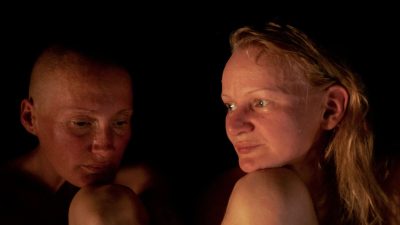
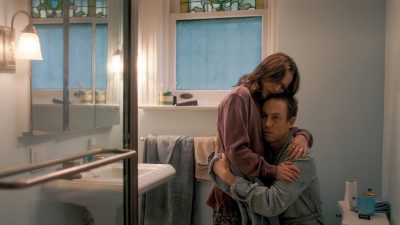

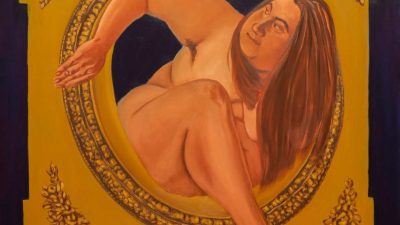
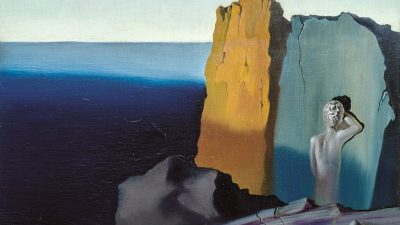



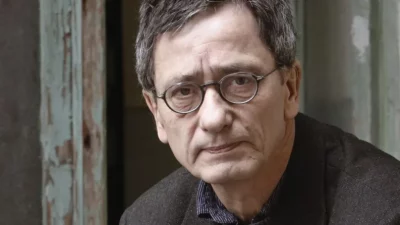




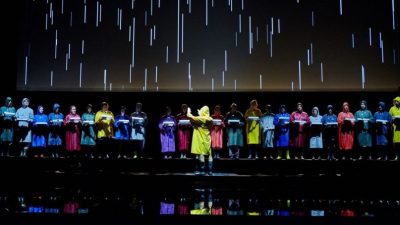







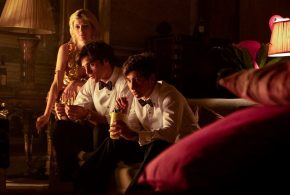
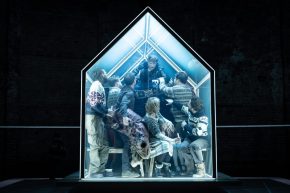

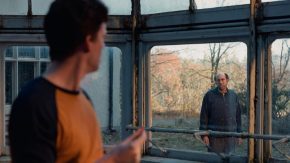
Comments